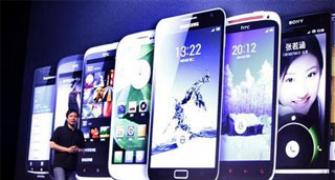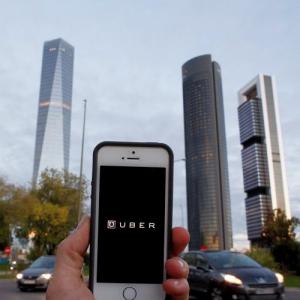 The stories of Uber and Xiaomi, originating from two ends of the globe, are overturning our understanding of globalisation strategies, notes Indrajit Gupta.
The stories of Uber and Xiaomi, originating from two ends of the globe, are overturning our understanding of globalisation strategies, notes Indrajit Gupta.
When I started my career in business journalism in the early 1990s with this very newspaper, there were a veritable flood of interesting stories around global consumer brands entering India for the first time - and often learning things the hard way.
Levi's, Ariel, Kit Kat, Baskin Robbins, Wall's and Coca-Cola's second stint, the list was endless. And in the first flush of liberalisation, we soaked it all up.
Other than Unilever, which set up its Indian subsidiary way back in 1931, most multinational corporations (MNCs) had been tentative in expanding overseas.
It took Procter & Gamble, one of the foremost consumer packaged goods companies, more than 50 years after Lever to discover India through its acquisition of Richardson Hindustan in 1985.
Back then, global expansion was a carefully calibrated approach. It very often required creating a cadre of global managers - or country managers, as they were called - who would have the responsibility of opening up these new frontier markets, carefully testing brands and product concepts in each local market, and looking for strategic alliances with Indian players for distribution reach.
Now contrast that to Uber. It was born in San Francisco in 2009, rolled out its first mobile app that same year. It first set up shop in Paris in 2011, followed by Canada and Australia in 2012, and Singapore in 2013.
On August 29, 2013, it started operations in Bangalore (now Bengaluru), before branching out to nearly 11 cities in India. Today, it has spread across 55 cities in the world and commands an eye-popping valuation of over $40 billion.
On a recent trip to Kolkata, I was pleasantly surprised to see Uber (with Ola and Meru, too) fill an important void in a city where surly cab drivers are seldom willing to take passengers to their destination.
I even saw a local newspaper report quoting a company rep suggesting that Kolkata was today one of their fastest growing markets. (Now, for a city that everyone seems to reckon has fallen behind the curve, this certainly makes for interesting reading.)
Chinese smartphone maker Xiaomi has a similar story. It was formed by eight partners in 2010 and grew on the back of the local demand for smartphones to become the world's third largest player, behind Samsung and Apple.
Last year, it expanded to Singapore, and has since then hung its shingles in Malaysia, the Philippines and India, and announced plans to enter Indonesia, Thailand, Russia, Turkey, Brazil and Mexico in the coming months.
At the end of December 2014, Xiaomi became the world's most valuable technology start-up after it received $1.1 billion in funding from investors, making Xiaomi's valuation more than $46 billion. (As a contrast, the 85-year-old Unilever is valued at around £82 billion pounds.)
The stories of Uber and Xiaomi, originating from two ends of the globe, are overturning our understanding of globalisation strategies.
In the old world, local businesses first went regional, then spread across the country, branched into adjacent countries, before spreading further across the world. That process understandably took a lot of time.
In the new world, these digitally driven businesses have cut short the time to market significantly. And enough has already been written about why both these business models are disrupting their market spaces.
For one, both Uber and Xiaomi are asset-light models. There are many well-documented facets behind Xiaomi's rise: it licensed out core technology from the likes of Qualcomm, chose to use the internet as an exclusive channel to market mobile phones, thereby cutting out the middleman, and extended the product life cycle to gain the benefits of lower component prices.
In media interactions, Lei Jun, the co-founder of Xiaomi, has also explained the genesis of its customer centricity. When he worked at Kingsoft to manufacture phones for Nokia and Motorola, his research and development boss would seldom take on board any suggestions to improve the customer experience.
Mr Lei decided that one day if he made a phone, he would give customers an opportunity to tell anything they wanted or found was wrong. And if it was justifiable, the company would work on it immediately.
And within a week, the customer's wishes would come true. Even today, it releases new phones every week, with updates, calling the process "design as you build".
And by bringing on board an industry stalwart like Hugo Barra from Google, who served as vice-president of product management for the Android platform, Xiaomi has significantly upped the ante on its global ambitions.
Both Uber and Xiaomi may well be poster boys of the new economy. But the jury is still out on whether these two world-beaters will deliver on their early promises, or run into unexpected hurdles, just as Uber did through its regulatory squabbles in India and elsewhere.
In the end, the seeds of destruction for any smart company lie within, of trying to be too clever by half - and getting carried away by one's hubris and aggression.
The writer is co-founder and director at Founding Fuel Publishing, a digital media and learning platform for the entrepreneurial community.










